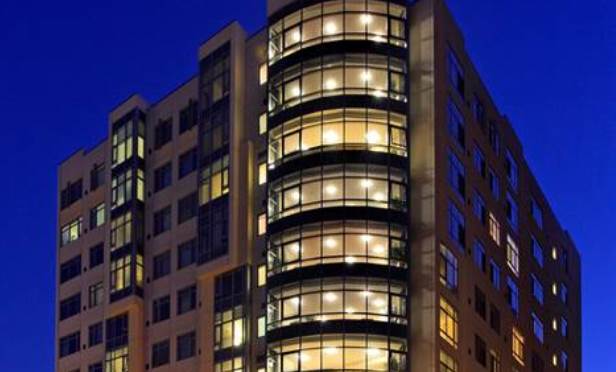 Edith Witt at 66-98 9th St. in San Francisco was one of the properties that received upgrades.
Edith Witt at 66-98 9th St. in San Francisco was one of the properties that received upgrades.
SAN FRANCISCO—Nonprofit affordable housing owner Mercy Housing wanted to lower operating costs while keeping tenants comfortable in an affordable and sustainable way. Part of the solution: upgrade buildings to use less energy and water while delivering better comfort, GlobeSt.com learns in this exclusive.
However, securing funds to pay for efficiency upgrades outside of a refinance year was difficult. Even with incentives that are available from utilities and the government, Mercy Housing needed a more creative solution.
Mercy Housing partnered with Bright Power and Affordable Community Energy Services Company to help upgrade approximately 80 properties in the Bay Area and Sacramento. The properties are located in Daly City, Half Moon Bay, Mill Valley, Oakland, San Francisco, San Rafael and Folsom, which is the majority of its California portfolio.
Through this ongoing collaboration, Mercy Housing is able to utilize a pay-from-savings financing model to complete efficiency improvements when needed most, rather than waiting for refinancing or taking out a secondary loan. ACE set up an entity to pay for the upgrades and get paid back over time through the energy savings. In other words, Mercy did not have to pay anything up front.
With this innovative payment model, Mercy Housing didn't need to spend or raise capital to reduce energy and water usage and cost, improve resident comfort, and lower its carbon footprint. This plan is an innovative way to finance the project and a model that can be replicated throughout other affordable housing units.
As Mercy Housing's energy and water management partner, Bright Power first used EnergyScoreCards cloud-based energy analysis platform to understand areas of waste and underperformance. Bright Power used this data to determine which properties needed an onsite energy audit to better identify high-impact opportunities for improvement.
Like all EnergyScoreCards clients, Mercy Housing is paired with a dedicated energy analyst to monitor its buildings' energy performance and calculate savings. To further ensure project returns, Bright Power is providing operations and maintenance support to the properties for the duration of the 10-year agreement.
Mercy Housing, Bright Power and ACE then prioritized phases of work based on factors such as building performance, location, and available government and utility incentive programs such as California's low-income weatherization program. This pay-from-savings financing approach, with funding through Reinvestment Fund, gave Mercy Housing the ability to complete the needed upgrades and use project savings to pay for the improvements during a 10-year period. Bright Power installed the phase first of this project in April 2017 and will continue to retrofit through the end of 2019.
“Mercy determined that four properties in San Francisco would be good candidates in the effort to reduce greenhouse gas emissions,” Daniel Chen, project manager for Bright Power, tells GlobeSt.com. “The incentives allowed us to provide funds for and implement low-income weatherization via heat pump water heaters, which are fairly new to the American market.”
Various energy and water improvements were implemented at the properties. Each property did not receive every improvement but some of the upgrades included LED lighting in common areas and resident apartments, heat pump hot water heating systems, high-efficiency heating systems, variable speed drive recirculation pump for domestic hot water, variable speed drive pump for pool and spa pumps, domestic hot water and new steam cycle controls, retrocommissioned existing steam cycle controls, thermostatic radiator valves, orifice plates, steam trap servicing, domestic hot water heating pipes insulation, occupancy sensor thermostats in resident apartments, tub diverters, low-flow fixtures on faucets and shower heads, ENERGY STAR washers and refrigerators, and vending misers.
Bright Power is actively verifying savings in EnergyScoreCards and engaging with site staff to help optimize operations and maintenance throughout the 10-year financing term. Across the first six properties that completed implementation, Mercy Housing is finding positive results: 29% gas use reduction, 9% electric use reduction, 4% water use reduction and 7% carbon emissions reduction.
© 2025 ALM Global, LLC, All Rights Reserved. Request academic re-use from www.copyright.com. All other uses, submit a request to [email protected]. For more information visit Asset & Logo Licensing.








